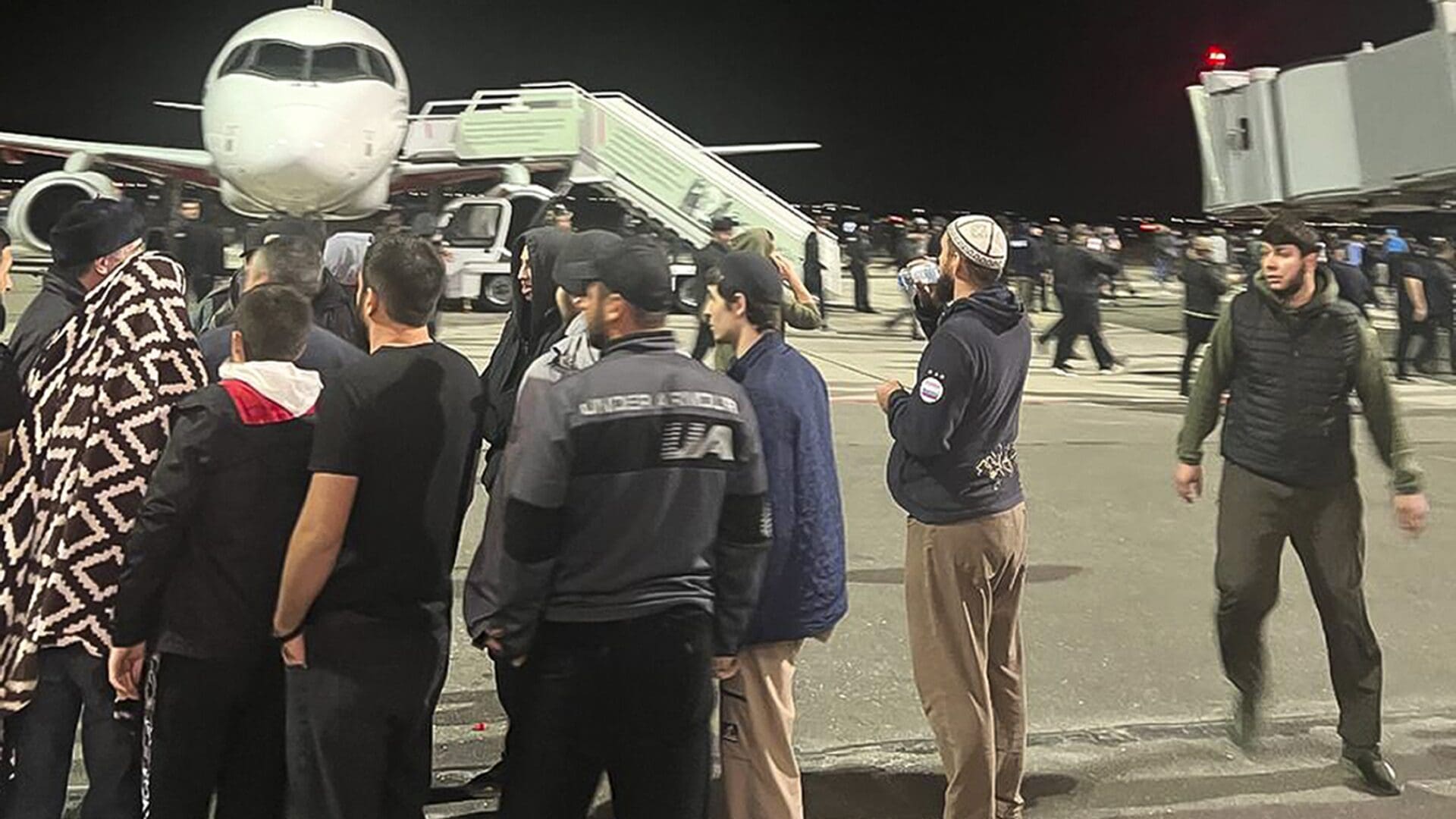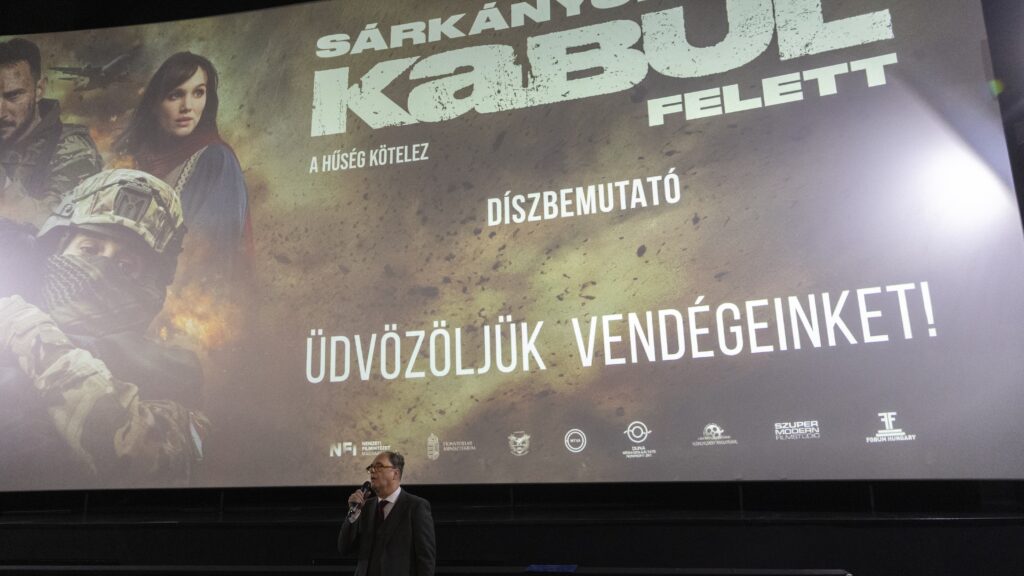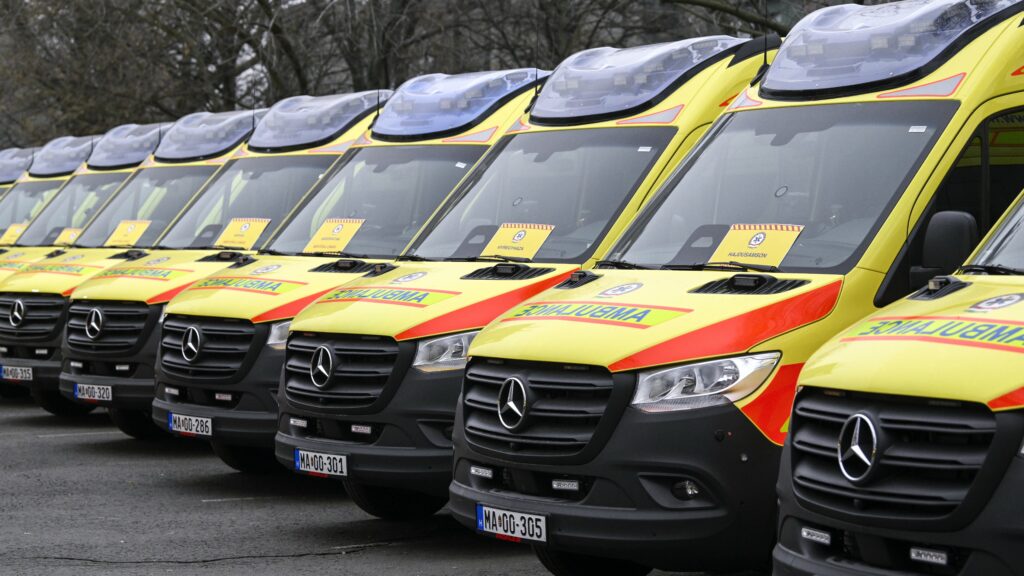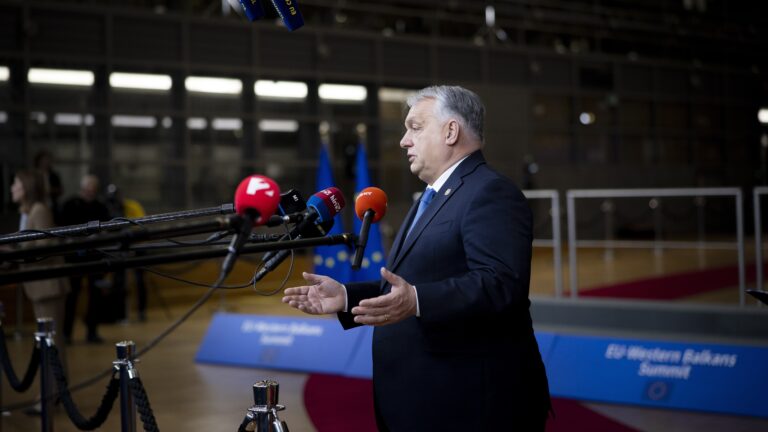In recent days, Russia has seen the largest wave of antisemitic protests in decades. The riots erupted in the Republic of Dagestan, the southernmost part of Russia, located in the Caucasus. The first violent protests started in the town of Khasavyurt, when a group of men searched a local hotel, admittedly looking for Jews—according to some posts shared on social media, Jews, who had left Israel because of the war, found shelter in that Khasavyurt hotel. The violent rioters broke some windows with stones.
In the days that followed, the rioting spread to the capital city of the republic, Makhachkala, too. There the mob attacked the local airport after news started to circulate on social media that a plane had landed there from Tel Aviv. A crowd of violent people broke into the airport, again, in search of Jews. The rioters smashed windows, while waving Palestinian flags and denouncing Israel. Eventually, Russian authorities used force to restore order at the airport. 60 arrests were made, 20 people were injured and one police officer died in the hospital as a result of the violence.
Christine Burgum on Twitter: “A plane from Israel lands in Dagestan and the airport and runway is stormed by Palestinian enjoyers, passengers told to get back on for their own safety. pic.twitter.com/vuoWi5WXnd / Twitter”
A plane from Israel lands in Dagestan and the airport and runway is stormed by Palestinian enjoyers, passengers told to get back on for their own safety. pic.twitter.com/vuoWi5WXnd
Quite inconveniently for the Russian leadership, the riots happened just prior to Unity Day, is celebrated in the Federation on 4 November. The day is supposed to create a sense of unity among the diverse nations and ethnicities living in the Federation. As could be anticipated, Russian propaganda, and Putin himself,
blamed the recent events in the Caucasus on malicious Ukrainian influence.
The antisemitic protests were linked to Ukraine through the so-called Morning Dagestan social media platform (where much of the messages circulated about the location of Jews, contributing to sparking the violence), associated with Ilya Ponomarev, a Russian-Ukrainian politician. Until 2016, Ilya Ponomarev was member of the Russian State Duma, being the only one representative in 2014 who voted against the annexation of Crimea. He was soon forced to leave Russia, and he emigrated to Ukraine, where he received Ukrainian citizenship. Albeit Ilya Ponomarev denies having any connections to the Morning Dagestan platform since 2022, according to the BBC, the politician called Morning Dagestan ‘our channel’ in August 2023, that is, not much before the recent protests erupted.
Antisemitism and Jews in Dagestan
The antisemitic protests of Dagestan spilled over to other parts of Russia, too. In the neighbouring Karachay-Cherkessia the mob demanded that Jews leave the republic and started a fire in front of the local Jewish cultural centre. These antisemitic incidents were not the first in the Caucasus and in Dagestan either, albeit undoubtedly, they are the biggest and most widespread in living memory. Other instances of antisemitic violence in Dagestan include the 2013 shooting of Ovadia Isakov, the chief rabbi of the city of Derbent. Albeit the rabbi suffered life-threatening wounds, he recovered, after being taken to Israel. This was not the first assassination attempt against the chief rabbi of Derbent: in 2007, his home was vandalised while he and his family was sleeping in their Dagestani home.
Although the Jewish population still living in the Russian parts of the Caucasus is not numerous, Dagestan used to be home to a Russian Jewish minority known as the Mountain Jews. In Soviet Russia, four larger communities of Jews existed: Ashkenazi Jews, mostly living in today’s Moldova, Lithuania, Belarus and Ukraine;, Bukharan Jews, living in Central Asia; Georgian Jews, living in the territories of today’s Georgia, and Mountain Jews. Mountain Jews had been living in the Russian Empire ever since it occupied the territories of today’s Dagestan in the early 19th century. The Mountain Jew communities, that in total never exceeded a couple of hundred thousand people, suffered great losses during the Nazi massacres of the 1940s, as well as in the Stalinist era. Once the Soviet Union collapsed, Mountain Jews, much like members of the other Russian Jewish communities, emigrated to Israel en masse. As of now, it is estimated that only 300-400 families of Mountain Jews are left in the Republic of Dagestan, where most of the recent antisemitic riots took place.
Antisemitic Actions Across Europe — Not in Budapest
The events in Dagestan were, unfortunately, not unique in recent days. In London, 70,000 pro-Palestine protestors gathered a couple of days ago; during the demonstration, nine arrests were made, one for assaulting an officer.
Sparked by the events in the Middle East, there has been an upsurge in hate crimes in London
—while in early October 2022 only 15 hate crimes were committed in London against Jews, in the same period this year the London police reported 218 such incidents. Radicals protesting Israel were capable of mobilizing support across Europe—from London to the Eastern edge of the continent, Makhachkala. No matter how small the number of radicals is among pro-Palestine supporters, their actions and their open hatred of Israel that could be observed in Europe in recent days, and which has not been condemned by representatives of European Muslim communities, is concerning.
Contrary to other parts of Europe, Budapest is one of few places on the continent where such demonstrations were not allowed. In October, the Budapest police banned two gatherings linked to the terrorist organization Hamas’ call for protest. The pro-terror demonstrations were banned as they were deemed a risk to public safety by the police, as Hungarian Conservative has also reported.







